Cinema very regularly draws inspiration from original works that it adapts. While some adaptations are memorable enough to win prestigious awards, others are downright bad… Today, we're looking back at eight of them!
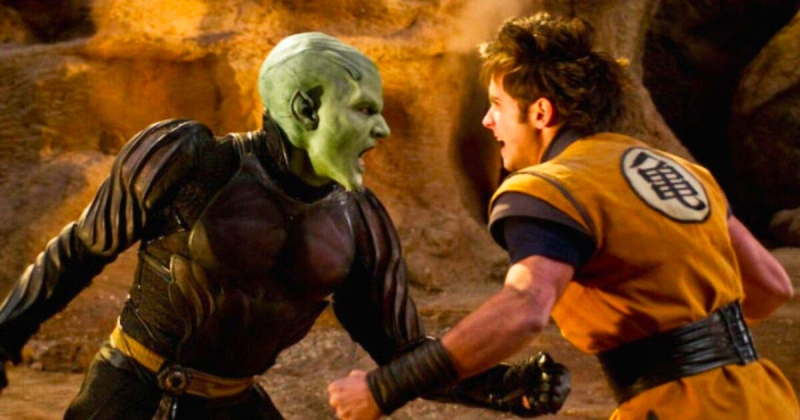
#1 From Hell, by the Hughes Brothers (2001)
Often cited among the great comics of Alan Moore (Watchmen, V for Vendetta), From Hell was adapted for the cinema by brothers Albert and Allen Hughes. While the comic strip manages to tell both a version of the Jack the Ripper story, it is also a psychogeographical study of the London district of Whitechapel as much as a critique of Victorian society, revealing its deep social inequalities. It is also a work in which Alan Moore begins to reflect on magic – a fundamental theme in his work since the mid-1990s.
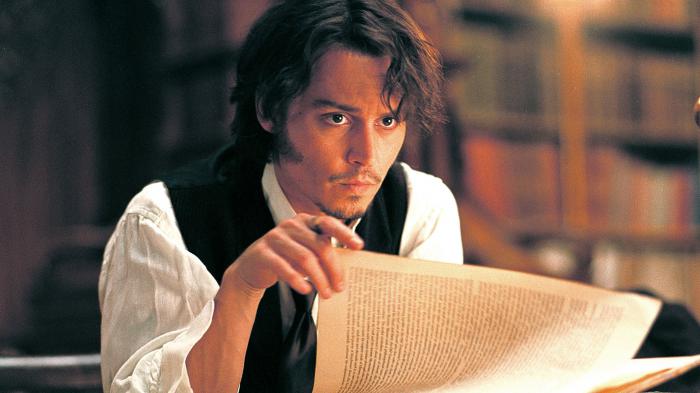
But this masterpiece of more than 500 pages has been reduced to a simple story of the criminal of the first serial killer in History. Worse: the film does not even manage to respect the plot of the comic strip. Thus, Prince Albert and the painter Walter Sickert are absent from the story, while they are the starting point of this sordid murder affair. No doubt we were right to hope for better from a film adapting Moore's work, especially when we consider that the screenplay was entrusted to Terry Hayes, known among other things for having co-written the screenplays of Mad Max 2 (1981) and Mad Max: Beyond Thunderdome (1985).
#2 The League of Extraordinary Gentlemen, by Stephen Norrington (2003)
World-renowned as the greatest comic book author, Alan Moore is the author of many masterpieces, which have regularly been adapted for film and television. But The British screenwriter does not appreciate film adaptations of his work at all, to the point that he refuses to receive any money from them or have his name associated with them. One of the films that most aroused his anger was the extremely bad adaptation of The League of Extraordinary Gentlemen directed by Stephen Norrington, based on the comic book series that Moore wrote for ABC, then Top Shelf.
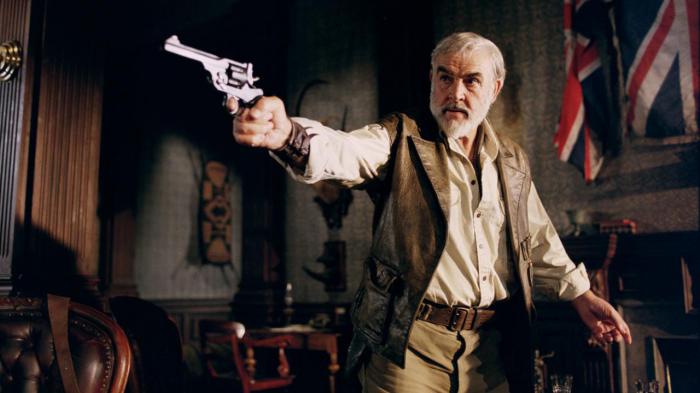
When asked about the film, Alan Moore didn't hesitate to bash it: “In the film adaptation of The League of Extraordinary Gentlemen – which I don't care about and won't be going to see – the American producers tried to introduce American characters to counterbalance all these European characters. The only one they could find was Tom Sawyer. Which says a lot, I think, about the poverty of the American imagination.” There you have it!
#3 Around the World in 80 Days, BY FRANK CORACI (2004)
Often considered one of the great precursors of science fiction, French writer Jules Verne wrote many scientific adventure novels, which have attracted a very wide readership. Hollywood is also fond of his novels. But the adaptations are rarely of quality… This is what we are reminded of by the horrifying Around the World in 80 Days by Frank Coraci. Featuring Jackie Chan as Passepartou and Steve Coogan as Phileas Fogg, the film obviously differs from the original work, but that's not even where it's at. its biggest worry.

By never managing to successfully blend adventure cinema, family comedy and action, the feature film is held together mainly by the amusing (and risky) pirouettes of Jackie Chan, who is the only real asset of the film. Worse still, it seems to completely exclude the adult audience from the adventure. In the end, the film is reminiscent of the TV movie Hansel and Gretelby Tim Burton, which mixed the tale of the Brothers Grimm with Japanese martial arts. But the filmmaker, who had not yet directed a feature film, had fully succeeded in his bet.
#4 His Dark Materials: The Golden Compass, by Chris Weitz (2007)
With The Hobbit by J.R.R. Tolkien and Harry Potter by J.K. Rowling, His Dark Materials(His Dark Materials by Philip Pullman is one of the greatest fantasy sagas aimed at young audiences (and adults). Launched in 1995 with The Northern Kingdoms, the British writer's trilogy is full of exciting twists and turns and characters as endearing as they are charismatic. But it is above all a profoundly anticlerical saga, condemning the excesses of religious obscurantism.
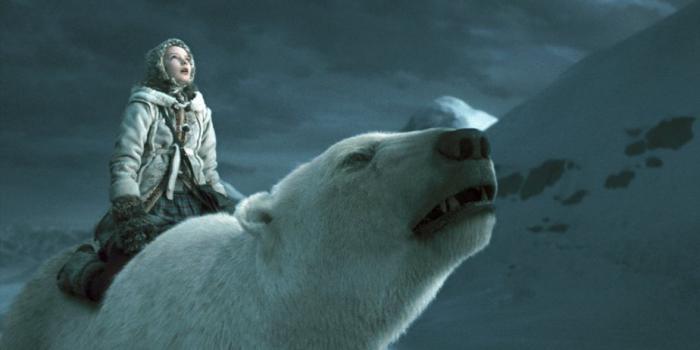
Released in 2007, the film His Dark Materials: The Golden Compass was an early attempt at adapting Pullman's trilogy for Hollywood.Disowned by the writer himself as well as by his fans, the film has almost completely abandoned the anticlerical discourse of the original work. In addition, the feature film which mixes English and American actors offers a more innocent, more family-friendly tone. Fortunately, His Dark Materials was later adapted into a series by HBO and the BBC. Although it also has some flaws, the series was able to adapt the three volumes of the trilogy. It is unknown whether an adaptation of The Dust Trilogyis being considered.
#5 DragonBall Evolution, by James Wong (2009)
A manga revered worldwide, Akira Toriyama's Dragon Ball redefined the shonen nekketsu genre. Many highly successful manga are its direct heirs, including Eiichiro Oda's One Piece and Narutoby Masashi Kishimoto. Its anime adaptation by Toei Animation increased its popularity in the West, particularly in France during the 1990s. A success that made Hollywood want to produce a live-action adaptation of the manga.
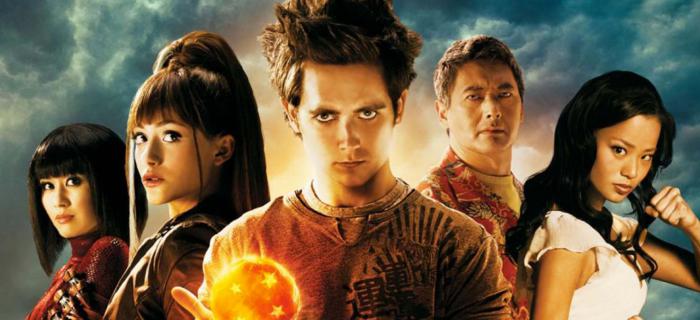
In addition to offering an American cast ;rican,Dragonball Evolutionabsolutely does not respect the DNA of the manga. Hated by all, it is considered one of the worst films ever made, so much so that its screenwriter, Ben Ramsey, apologized to Akira Toriyama and his fans. He admitted that he had accepted the job for the money and that he had written the screenplay without being passionate about the project himself. It showed!
#6 Harry Potter and the Half-Blood Prince, by David Yates (2009)
One of the greatest literary fantasy sagas, the cycle Harry Potter was brought to the cinema in 2001 with Harry Potter and the Philosopher's Stone. While the film series was more than acclaimed, particularly thanks to the relevance of its casting and its ability to recreate J.K. Rowling's Wizarding World, not all films are equal. Thus, Harry Potter and the Half-Blood Princeby David Yates, which adapts the sixth novel in the series, has been a real disappointment for many fans.
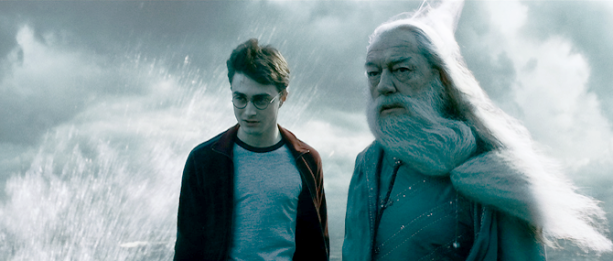
While the sixth Harry Potter book is a fan favorite, its film adaptation doesn't reflect the complexity of the work. First of all, the lessons that Albus Dumbledore gives to young Harry in order to teach him the truth about Lord Voldemort have been reduced to their bare minimum. Then, the feature film seems to focus more on the love story between Ron Weasley and Lavender Brown than on that between Harry and Ginny. Professor Severus Snape, although essential, is also not very present. Finally, the film ignores many important points in the life of the students at Hogwarts School, including Apparition lessons.
#7 The Three Musketeers, by Paul W.S. Anderson (2011)
A classic of the swashbuckling novel, Alexandre Dumas' masterpiece has been adapted for the cinema many times. Its aura has long since crossed French borders to the point of becoming an international success. The director of Paul W.S. Anderson, known of course for the saga Resident Evil and for Monster Hunter, has decided to adapt this great novel as well. Not content with sporting a rather ridiculous retro-futuristic and steampunk style, The Three Musketeers by Paul W.S. Anderson does not respect the plot written by Dumas.
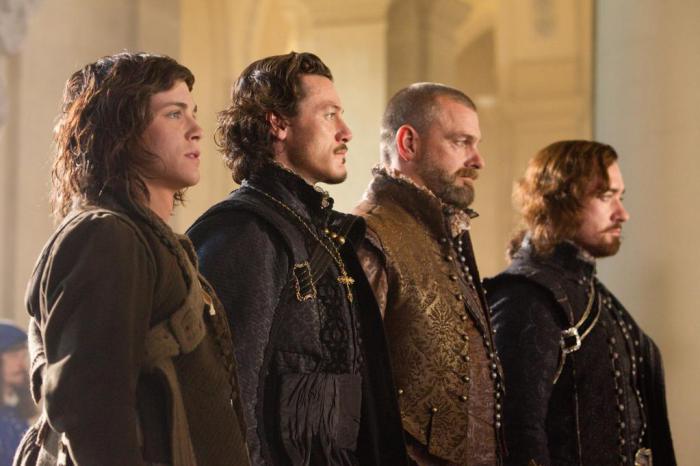
But Paul W.S. Anderson does. .. Paul W.S. Anderson.The Three Musketeershas all the makings of a mindless blockbuster, and doesn't even manage to take advantage of its multi-star cast, including Luke Evans, Orlando Bloom, Christoph Waltz, Mads Mikkelsen, Juno Temple, Matthew Macfadyen, etc. Oh, and yes: there's Milla Jovovitch, if you were wondering.
#8 The Seventh Son, by Sergei Bodrov (2014)
If films like Peter Jackson's The Lord of the Rings and the Harry Potter saga or series like Game of Throneswere huge successes, fantasy has long been a rather risky genre in cinema. Several studios have failed with projects that were winning on paper and turned out to be real flops. We can obviously cite Eragonby Stefen Fangmeier based on the first volume of the saga by Christopher Paolini (it will also be his only film as director), but we preferred to concentrate on The Seventh Son by Sergei Bodrov.
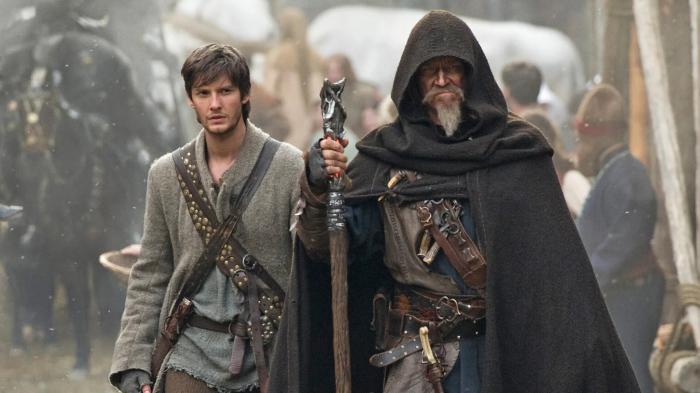
Released in 2014, the film is an adaptation of the cycle of The Spook's Apprentice by the English writer Joseph Delaney. It is ultimately quite common for a film not to respect the plot of the work it is adapting; but The Seventh Son is so demeaning that it has been considered as an insult to the novels of the late Delaney and his readership by fans. The worst part of this story is that the film was entrusted to a very talented screenwriter: the British Steven Knight, to whom we owe among others the series Peaky Blinders and Taboo. Did you find this article interesting? Then don't hesitate to tell us what are for you the worst adaptations to the cinema.

